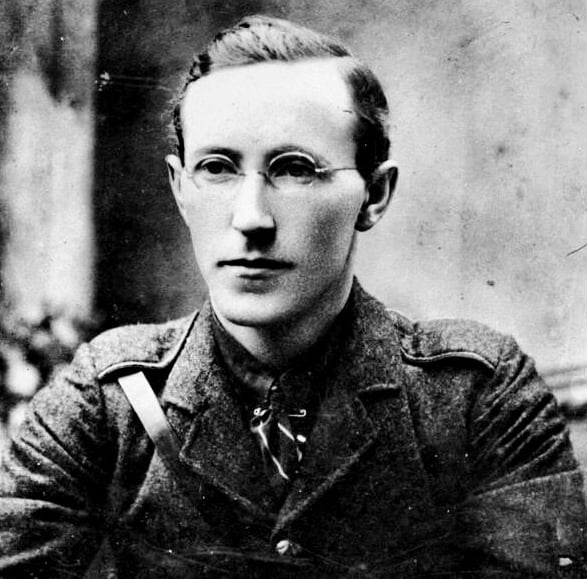Amnesty offer follows Liam Deasy’s surrender call, but no peace in clear sight
Dublin, 10 February 1923 - A statement issued to the press confirming the willingness of anti-treaty IRA prisoner, Liam Deasy to aid the ‘unconditional surrender of all arms and men’ as required by National Army Chief of Staff, and Minister for Defence, General Richard Mulcahy, has drawn a sharp response from his anti-treaty comrades. Mr. Deasy is Deputy Chief of Staff of the anti-treaty IRA.
Mr. Liam Lynch has countered that the proposals put forward by Mr. Deasy ‘cannot be considered’, Mr. Lynch added pointedly that ‘as in the case of all officers captured by the enemy, an officer has taken charge of the Deputy Chief of Staff’s recent command.’

Liam Lynch, IRA Commander, circa 1922 (Image: Liam Lynch National Commemoration Facebook page)
Mr. Deasy was captured by National Forces in Cahir, Co. Tipperary on January 18th and was subsequently sentenced to death on being found guilty of the charge of possession, without proper authority of a revolver and ammunition. The sentence was due to be carried out on January 27th but was halted following a request from Deasy for a meeting to discuss his fate in relation to ‘the future of Ireland’. It was during an exchange of written messages with Major General Prout that the commitment to aid the unconditional surrender of men and arms as required by General Mulcahy was given.
Mr. Deasy has since been transferred from Clonmel to Dublin and following conversations with officers of the National Army, he agreed to sign and issue a statement for release to the newspapers on the 8th of February which was addressed on the 29th or 30th of January to the members of Mr. De Valera's Executive and Army Council.
A proclamation issued by General Mulcahy, has also been issued to the press, offering an amnesty to all persons now in arms against the Government who, ‘on or before Sunday, Feb. 18, 1923, surrender with arms to any officer of the National forces or through any intermediary.’
Sinn Féin T.D Mary MacSwiney has since spoken of her shock on reading of the ‘abject surrender of Liam Deasy.’ Speaking to a public meeting in the Mansion House in support of the National organisation of Sinn Féin, MacSwiney described Mr. Deasy as a ‘brave man’ and said she didn’t believe it was ‘any funk in the face of death’ that made him act as he did. Rather, she insisted, it was a ‘want of faith.’ Striking a defiant note, Miss MacSwiney declared to the meeting, ‘We never will surrender. We will not give up the Republic.’
The surrender call from Deasy comes at a time when a group of prisoners held in Limerick County Jail have issued their own suggestions as how best to end the present armed struggle in Ireland. Claiming to represent 600 prisoners, the signatories of the statement have asked that four men from Limerick jail be given parole to enable them to place before the anti-treaty leaders a proposition to stop the fighting which at this stage amounted to a ‘waste of blood.’
The four men suggested for parole are Eamonn Corbett from Galway, Tadhg Crowley from Limerick, Patrick Landers from Kerry and Sean McLoughlin from Dublin: the four men would be released and would then return to the jail whether their mission was a success or not.
It was, they argued, only people on the outside who could make peace and unless initiative was taken to achieve that end the struggle will ‘drag on until Ireland is nothing but ashes and blood.’ The statement issued by prisoners asked that all executions be suspended on the government side and in return they - the signatories - would endeavor to prevent punitive measures on the other side.
[Editor's note: This is an article from Century Ireland, a fortnightly online newspaper, written from the perspective of a journalist 100 years ago, based on news reports of the time.]





















